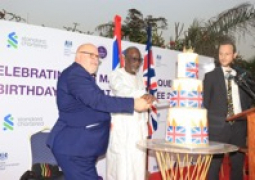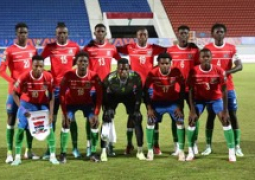
Professor Pierre Gomez said the NRP would run from 2024 to 2029 on how research management and administration could be systemised and harnessed to accelerate the realisation of the strategic objectives of current and subsequent national development initiatives.
The 5-year NRP demonstrates clear understanding of the importance to integrate research into the mainstream of national development goals and priorities, Prof Gomez said following government’s approved documents for the intervention of MoHERST. The next step is to send the bills to the National Assembly for it to become Acts.
He said the NRP should have clear policy decision making that is premised on evidence-based research.
He said further that the policy underlines the historical roles of Research and Development (R&D) in global competitiveness of nations, as well as the accelerating impact of professionalised research management and administrative systems on the quality of national research outputs.
“This Policy is the maiden National Research policy that provides a legal and regulatory framework for the administration, management, and coordination of research in The Gambia,” he said.
“The NRP 2024 - 2029 will contribute towards ensuring that research will be conducted according to nationally acceptable research standards and in line with national development aspirations, goals, and priorities.”
In view of the foregoing, he added, the NRP 2024-2029 therefore proposes the establishment of a research governance framework and subsequent important bodies which shall be responsible for the guidance, governance, oversight, management, and administration of research (with national development implications) in the country.
Prof Gomez said further that the National Research & Ethics Regulatory Framework (NARERF 2024) is an instrument proposed by the policy which outlines the mechanisms for adherence to ethics issues on research conducted in The Gambia.





